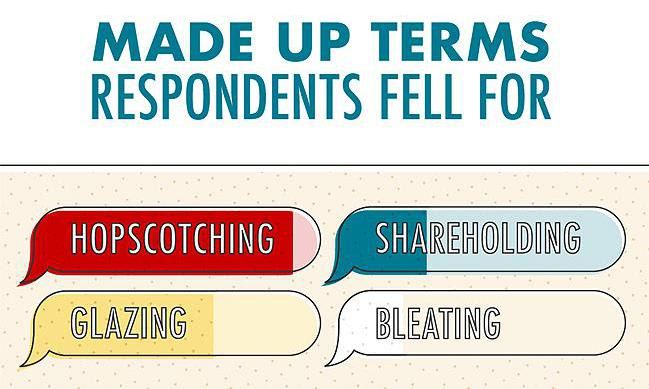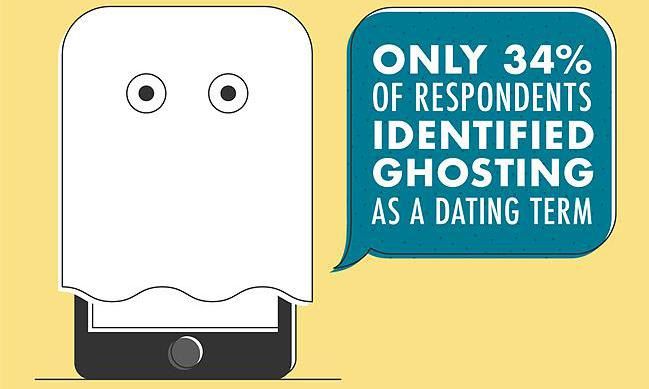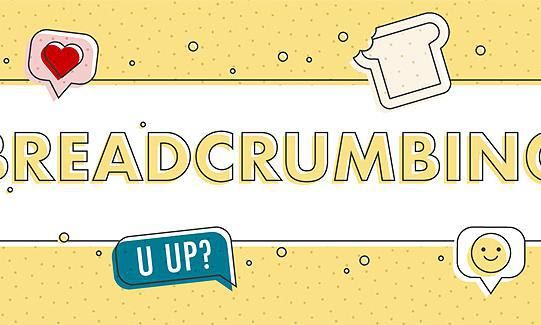In the last several years, a new era of courtship has become mainstream: online dating apps. While many were initially skeptical of what the outcomes would be from these, there’s no denying that their popularity has skyrocketed. One of the flagship dating apps, Tinder, reports that they have more than 57 million users around the world, and process close to 2 billion swipes on a daily basis — almost 4,000 every second.
This evolution of dating and swiping right to find love has also ushered in a new dictionary of terms and abbreviations to describe modern day dating situations. Ghosts are no longer unique to Halloween time, and getting benched isn’t exclusive to athletes. These terms are a language of their own — but how many know the phrases to describe the dating situations they may find themselves in?
We decided to find out. We surveyed 1,000 Americans to see how well they knew popular modern-day dating lingo, in addition to if they could spot the fake terms we added in. Read on to see what we uncovered.
54% of people can’t identify dating terms
Despite the popularity of dating apps, more than half of people surveyed were not able to identify any of the common dating terms. In a survey that included actual dating terms like ghosting and submarining, 54% still selected “none of the above” when asked which words were actually terms. In fact, only a low 4.6% of millennials correctly answered that submarining as a modern-day dating term.
15% of respondents fell for made-up dating terms
Along with all the time spent just trying to make a connection, people also have to try and keep up with the latest lingo to keep up with their potential partners. We included in our survey four made-up dating terms (hopscotching, glazing, shareholding and bleating) to see if respondents would fall for them.
With so many phrases to keep track of (and some that sound straight-up ridiculous), it’s no surprise that 15% of survey respondents fell for made-up dating terms. Hopscotching, which may sound like a phrase describing hopping from one relationship to the next, is really just a playground game. If you’re active in the online dating game, be sure to stay up-to-date on all the latest jargon to keep yourself on the cutting edge.
Don’t be spooked by ghosting
It seems like most millennials are familiar with the term ghosting — the act of vanishing from someone’s life without a text, call or social media interaction again. It’s not a new concept, and one that occurs quite commonly. Two studies even showed that nearly 25% of people have been ghosted at some point in their dating lives.
But despite its unfortunate commonality, only 34% of our survey respondents correctly identified ghosting as a term associated with dating. Even more surprising, the phrase “what is ghosting” is searched more than 14,000 times a month on Google. Save the ghosts for Halloween — this modern dating phenomenon is a form of rejection that can leave someone feeling hurt and confused.
Dating terms to know
There’s more to modern-day dating terms than just ghosting and catfishing. Here is some new and unique millennial dating lingo that people are using to describe their dating situations that you should know.
Submarining
Similar to ghosting, submarining is when someone you have romantic interest in disappears without a word. However, after a stretch of no contact, they will resurface — like a submarine — and behave as though nothing has changed.
Breadcrumbing
Created based on the fairytale “Hansel and Gretel,” breadcrumbing is when someone leaves proverbial breadcrumbs for someone through actions like texts or Instagram likes. It gives just enough attention to keep someone interested without having to commit fully.
Benching
Athletes aren’t the only ones who can be benched — this term essentially means someone that you are interested in is keeping you in their dating rotation, while they continue to play the field. They know they can keep coming back to you, but don’t have any interest in committing 100%.
Cushioning
If you’re cushioning someone, it essentially means you’re keeping them as a back-up plan. Cushioning is when two people are chatting or flirting, but one is in a relationship. If that relationship falls through, the other person will be there as a cushion to fall on.
Kittenfishing
Many of us are familiar with catfishing, where a person physically poses as an entirely different individual online than they are in reality. People who kittenfish will post photos of themselves on their profile, but usually have heavy editing, are several years old, or they may lie about things such as their height or job.
Cuffing season
Summer 2019 may have been dubbed “hot girl summer,” but fall will officially kick off cuffing season. This term describes the fall and winter months when the thought of having a significant other becomes more appealing. Who doesn’t want someone to cuddle with on the couch during the cold winter nights?
Methodology
This study consisted of one survey question conducted using Google Surveys. The sample consisted of no less than 1,000 completed responses. Post-stratification weighting has been applied to ensure an accurate and reliable representation of the total population. The survey ran during August 2019.
In the last decade, technology has helped us maintain and build relationships in so many ways. We have social media to help us keep in touch with family and friends, and now dating apps and websites help us create new relationships. And as online dating and swiping culture has become more mainstream, new phrases and terms have made their way into our vocabulary as a way to describe the common situations that people find themselves in. While sometimes they may sound too ridiculous to be true, it may just be the latest new trend in online dating.
Sources













